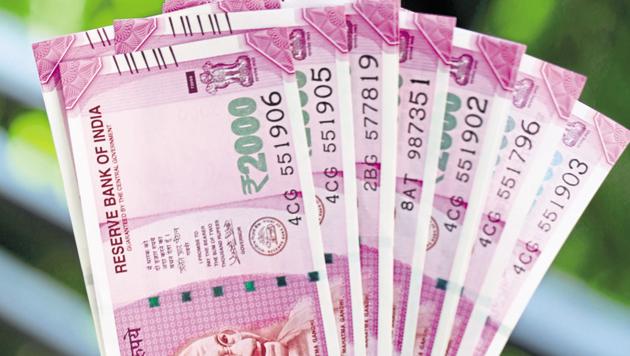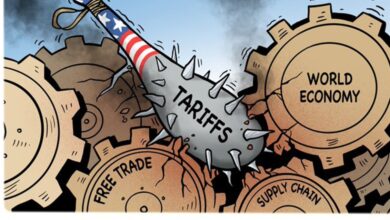Deadline Looms: What Happens If You Miss the September 30th Exchange or Deposit Date for ₹2,000 Notes

Deadline Looms: What Happens If You Miss the September 30th Exchange or Deposit Date for ₹2,000 Notes
As the clock ticks down to September 30th, an important date is fast approaching for Indian currency holders. This deadline marks the last opportunity for individuals to exchange or deposit ₹2,000 banknotes at their local banks. While these notes will retain their legal tender status beyond this date, a series of changes are set to take effect that may impact their practical use. In this comprehensive report, we’ll explore the implications of missing the September 30th deadline, shed light on the alternatives available, and discuss the potential consequences individuals might face if they fail to meet this critical cutoff.
Background
The ₹2,000 banknotes were introduced in 2016 as part of the Indian government’s demonetization effort to curb black money and counterfeiting. These high-denomination notes were issued with advanced security features to deter illicit activities and promote transparency in the economy. However, as the years have passed, the government has decided to discontinue the printing of ₹2,000 notes, citing various reasons including concerns over their potential misuse.
The Deadline
The September 30th deadline has been set by the Reserve Bank of India (RBI) as the final date for the public to exchange or deposit ₹2,000 notes at their respective banks. After this point, while the notes will remain legal tender, their practical utility will be significantly curtailed. This means that businesses and individuals may be reluctant to accept these notes for transactions, potentially causing inconvenience to those who still hold them.
Post-Deadline Scenario
Once the September 30th deadline passes, ₹2,000 notes will face restrictions in their circulation. While they can still be deposited in banks, individuals and businesses may find it increasingly challenging to use them for everyday transactions. Retailers and service providers may refuse to accept these notes due to uncertainty over their future status.

Exchange with the RBI
For those who miss the September 30th deadline but wish to exchange their ₹2,000 notes, the RBI will become their primary point of contact. The RBI has indicated that it will continue to exchange these notes at its offices. However, it’s important to note that individuals may be asked to provide an explanation for their inability to meet the deadline. This requirement could be accompanied by enhanced scrutiny to prevent any misuse of the ₹2,000 notes.
Consequences of Missing the Deadline
While missing the deadline doesn’t make ₹2,000 notes worthless, it does raise several important considerations for holders of these banknotes:
1. Limited Usability: The primary consequence is that the practical usability of these notes is likely to be severely restricted. Everyday transactions, such as shopping or paying for services, may become challenging, as many individuals and businesses may opt not to accept them.
2. Scrutiny by Authorities: Those seeking to exchange ₹2,000 notes with the RBI after the deadline should be prepared to explain why they missed the cutoff. The RBI may inquire about the source of the notes and the reasons for the delay, with the aim of preventing any illicit activities.
3. Reduced Liquidity: Holding onto a significant amount of ₹2,000 notes post-deadline may lead to reduced liquidity, as fewer avenues for spending or converting them may be available.
4. Inconvenience: Missing the deadline could lead to inconvenience in daily life, as individuals might need to seek out specific RBI offices for exchanges or deal with limited acceptance from businesses.
Alternatives
While the deadline is approaching, there are some alternatives that individuals holding ₹2,000 notes might consider:
1. Exchange Before the Deadline: The most straightforward option is to exchange or deposit these notes at a local bank before September 30th. This ensures a smooth transition and avoids potential inconveniences.
2. Use Them Now: Consider using ₹2,000 notes for your purchases and transactions before the deadline. Many businesses are still accepting them, and this approach can help you spend these notes while they are readily accepted.
3. Plan Ahead: If you anticipate difficulty meeting the deadline, plan your exchange with the RBI accordingly. Ensure you have a valid explanation for the delay and cooperate with any inquiries from authorities.
As the deadline looms, the broader economic implications of the ₹2,000 note phase-out are worth examining. The Indian government’s decision to discontinue the printing of these notes is part of a broader strategy to reshape the country’s currency landscape. The move is seen as an attempt to promote digital transactions and reduce the reliance on high-denomination cash, which has been associated with various illegal activities.
One of the potential benefits of this shift is a boost to financial inclusion. Encouraging the use of lower-denomination currency and digital payment methods can make financial services more accessible to a wider segment of the population, particularly those in rural areas who may have limited access to traditional banking. By reducing the prominence of ₹2,000 notes, the government aims to incentivize the adoption of digital payments, ultimately creating a more transparent and efficient financial ecosystem.
Moreover, the move aligns with global trends toward a cashless society. Many countries are actively promoting digital payments and reducing the use of high-denomination cash to enhance transparency, reduce tax evasion, and combat illicit financial activities. India’s decision to phase out ₹2,000 notes reflects a commitment to staying in sync with these international efforts and positioning itself as a modern and forward-thinking economy.

In conclusion, while the September 30th deadline for ₹2,000 notes may seem like a significant milestone, it’s part of a broader effort by the Indian government to modernize its currency system and promote digital transactions. Missing the deadline may lead to practical challenges for individuals, but it’s crucial to view this transition as a step towards a more inclusive, efficient, and transparent financial landscape. Adapting to these changes and staying informed about the evolving currency policies will be essential for individuals and businesses alike.





